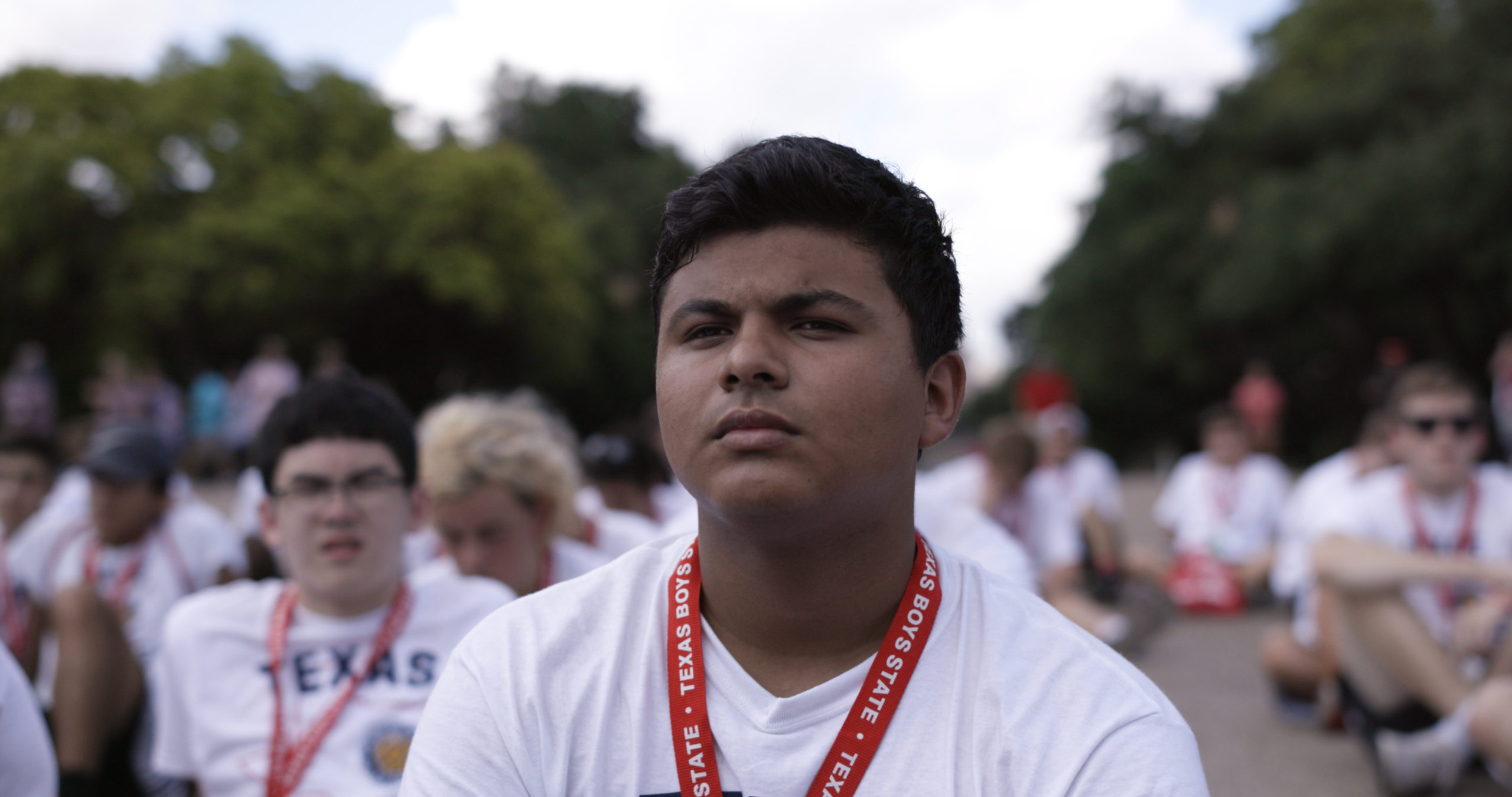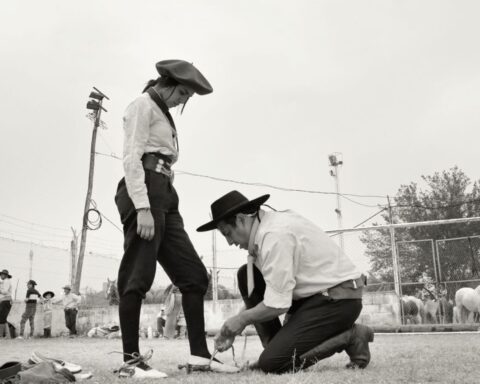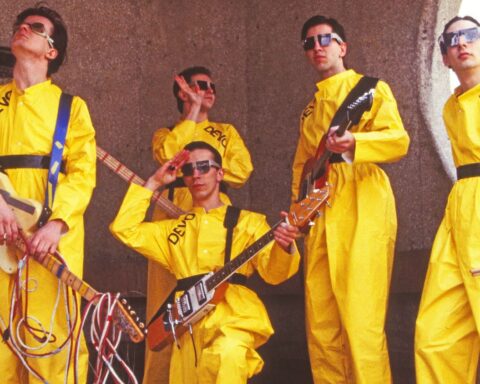The gulf in calibre between the non-fiction and fiction films at Sundance continues, with some truly astonishing documentaries taking the lead through generating headlines all over the world. The purchase of Jesse Moss’s Boys State by A24 and Apple for $10 million provided ample excitement, while others like the Taylor Swift documentary (Miss Americana) are already set to hit Netflix in the coming days. The streaming services are very well represented, and they clearly have the metrics to know that people are hungry for powerful stories drawn from reality. With a large number of alumni returning, there’s a palpable sense that this is another great year for docs, yet it’s never been harder to predict whether audiences will get a chance to see them on the big screen, like at this festival, or merely in the comfort of their home.
Here are some recent documentary highlights from the Sundance Film Festival.
Okawango: River of Dreams
(dir. Dereck Joubert; Documentary Premieres)
Joubert’s visually sumptuous if frustratingly anthropomorphic look at this part of the planet declares itself at the outset as a “love letter from us to the greatest river in Africa.” That scrawled credit (with the added, elliptic plea “We hope she knows…”) dissolves to focus on stellar visuals from the Okawango river as it flows into its delta. Music that’s as close to Pink Floyd without inviting a lawsuit soon mixes to a doom-metal cover of the Eurythmics’ hit song “Sweet Dreams.” One is left being both struck by the imagery and dismayed by some of the creative choices.
After more awkward talk of gendered waterways (seems this one’s a woman because of her “seduction” and “curves”), we see a bunch of creatures doing animal stuff, while the soothing (intoxicated?) narrator provides storylines for the residents of this ecosystem. Mixing drone footage, slow-motion and multi-camera shoots, it’s an impressive feat, and on the big screen it will surely inspire awe. Yet its narrative earnestness feels a bit twee at times. It falls short of the blessed obnoxiousness that Werner Herzog’s drawl would provide or the more scientifically rigorous opining that Sir David Attenborough’s style of narration delivers. While the film hints at the challenges that climate change and encroachment have on this fragile ecosystem, it’s a celebration rather than a screed. Despite any misgivings, it really is a remarkable journey down the river, showcasing a constellation of creatures in their natural habitat in the cradle of civilization that’s not soon forgotten.
On The Record
(dir Kirby Dick, Amy Ziering, U.S. Documentary Competition)
Before it even screened, On The Record was the centre of controversy. Originally listed in the program as Untitled, news leaked weeks before Sundance that the film was an exposé on the sexual assault allegations made against Def Jam founder Russell Simmons and harassment allegations against Epic/Arista Records’ L.A. Reid. At the same time, the film’s former executive producer Oprah Winfrey (along with her connection to Apple) pulled out, stating that she felt the film needed more work and greater balance. Whatever the reasons for this public exit of the doc’s most prominent African American champion and producer, the resulting film does feel that it’s not quite sure what it wants to be. It spends significant time on one accuser and her own decades-long journey to come forward with her story while giving shorter shrift to many other narrative threads that are left dangling.
On The Record does address some particularly provocative and compelling elements. The film highlights the unique challenges of African American women in the music industry, the societal pressures on black women to not further criminalize black men, and the community’s complicated relationship with law enforcement. In one of its most insightful cases, the film illustrates the reasons for the span of decades between the public accusation of rape and the time when it was committed, since the assault victim realized that exposing the offense could feed inadvertently into white supremacist notions of the sexualized Black male. The film is at its best when participants deeply ponder these complicated issues while cultural experts and witness testimony paint a complex picture of the era and its aftermath.
Things prove more frustrating as the film goes along, with the filmmakers unsteadily focussing energy on what seem to be superfluous career or personal elements of hip hop mogul Russell Simmons’ life rather than hearing more detailed testimony from several of the other women interviewed in greater detail. Also welcome would be a more nuanced examination of the relationship between hip-hop and misogyny. Some moments are ripe for such a deeper dive – hearing more from radio hosts, for example, would have been welcome – so while the end result is sure to have audiences rapt, it’s hard not to feel that the film could have had even more impact with some stronger direction and a more sophisticated structure.
Boys State
(dir. Jesse Moss and Amanda McBaine, U.S. Documentary Competition)
Jesse Moss was last at Sundance with the astonishing The Overnighters, and it’s thrilling that his latest film (co-directed with Moss’ long-time producer McBaine) proves to be another brilliant work. Boys State follows a series of Texan teenagers as they attend a week-long political camp where 1200 kids are divided into two fictional parties. In a compressed timeline, they work to develop policy positions and elect a “governor.” The doc plays as a mix of Spellbound and The War Room, showcasing the Machiavellian and idealistic aspects of politicking combined with a sports-like sense of competition.
Boys State follows several central characters as they vie to be heard by the rabble. We get to witness the entire gamut of the American political spectrum in the responses of these young men. The film dives into everything from knee-jerk talking points to sophisticated and pragmatic responses as the candidates try to steer a rowdy bunch to agree in principle with given points of view. The participants we follow are astounding, and it’s easy to believe that leaders and behind the scenes operatives for the next generation will emerge from this group, just as everyone from Dick Cheney to Bill Clinton got their start in their own adolescent events.
Impeccably directed, we witness the highs and lows of the contest, allowing the audience to see the results from a neutral perspective, making the shifting points-of-view all the more compelling. The product is a kind of Lord of the Flies of political theatre, resulting in one of the most eloquent articulations of the machinations of the American political system ever seen. This is exactly the kind of terrific experience one hopes to find at a festival, and Boys State is nothing short of a triumph.
Miss Americana
(dir. Lana Wilson, Documentary Premieres)
Miss Americana will absolutely be a dream come true for fans of Taylor Swift, providing an intimate look into both the creative process and the rise of this megastar. For non-fans (or those that simply ignored this particular corner of mass culture appeal) there’s lots that is quite revelatory, as the film contextualises the rise of Swift from teen songwriter to stadium rocker. The doc traces Swift’s growing understanding of her own limitations as the forces of stardom are shown to have shaped her, for better or worse, over the last decade and a half.
We start by seeing Swift reading from her teenage journals while sitting in a windowsill as kittens clamber over her. It’s an image that, like the artist, feels calculated, adorable and engaging, and thus clearly on brand. From there we get a mix of home movies, modern concert footage and some extraordinary insights into her creative process, providing a look that’s far more than the usual hagiographic drivel. It’s quite thrilling to witness the nascent melodies be formed, from scratch vocals right through final production.eEen some wild ideas about a metaphor-laden music video are crosscut between brainstorming and the final shots. Throughout, there’s a welcome self-awareness as Swift tells her story in a relatively unadorned fashion, allowing the story to reveal in an unvarnished way both her process and personal feelings. Wilson’s direction (along with producer Morgan Neville and the team at Tremolo Productions) keeps the balance throughout, resulting in a music documentary that generates for even the most cynical a degree of respect for this internationally celebrated performer. With deeper cuts from her catalogue as well as rare footage, this is a definitive look at Taylor Swift at this stage in her career, focussing on her as artist, activist and celebrity while exploring the contradictions that occur between the poles of her public persona.














